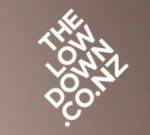Teenagers have always had it hard. Adolescence is a period of insecurity, self-doubt, risk taking and finding out who they are and whose company they enjoy. It was already this hard before social media came about! Now we have to consider that the teens in our community are going through this rough period of adolescence, while feeling the pressure to ensure that the online world knows their lives are amazing. Even when they’re not.

What the Data Says About Teen Depression
In recent data published by the Millennium Cohort Study it was shown that our female teen’s lives are being put in danger more and more for every hour spent on social media. It was shown that 40% of female teens that spend 5 hours or more on social media each day showed symptoms of teen depression. Five hours a day on social media may seem a bit unfathomable however it can definitely add up to be a realistic amount of time for any teen. This is an amount of time that can build an addiction fast, and easily send someone spiralling. It has been warned that youth as young as nine are becoming addicted to ‘likes’ as a form of social validation that makes them happy, and many are increasingly anxious about their online image and ‘keeping up appearances’. Social media platforms such as Instagram and Snapchat can make youth feel inferior to the people they follow and the content they see. These feelings of inferiority can lead to even worse feelings and affected youth may start to get feelings of teen depression.
Who Is At Fault For The High Numbers of Teen Depression?
The fact is that we cannot blame the social media giants such as Facebook, Instagram and Snapchat alone for the mental health problems or teen depression social media contributes to. There is definitely a wider range of variables that contribute to the negative side effects of social media. I’m Enough is an online and offline resource that aims to help tackle the range of variables that does in fact contribute to teen depression, while educating youth about the realities of the online world. One of the main realities being IT IS NOT REAL! The things that youth see online should not affect them so much because they never know what is actually happening in someone’s life or head at the time of filming an Instagram story or making a social media post. It’s not going to work to simply take away the phone or social media account of a young person. We have to think big picture, into the future, and educate them on the things that will help them to not feel bad about seeing a nice picture a friend posted and instead give them the tools to see a picture, acknowledge it, be happy for their friend, and move on.
Where to Start If You Are Concerned About Someone Suffering From Teen Depression?
If you need immediate help, go here to access our list of contacts that can help you or the person you care about. If you are looking to educate yourself more on combating the effects of social media on youth, check out our online database of videos to help you. Remember, you are enough. You are so enough it is unbelievable how enough you are.



